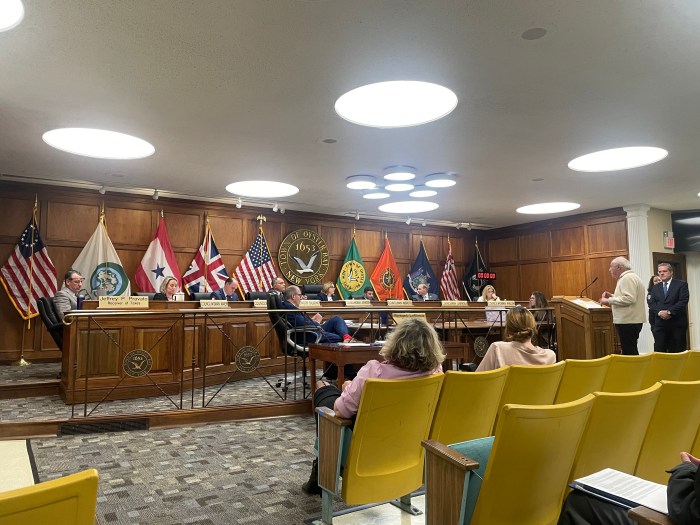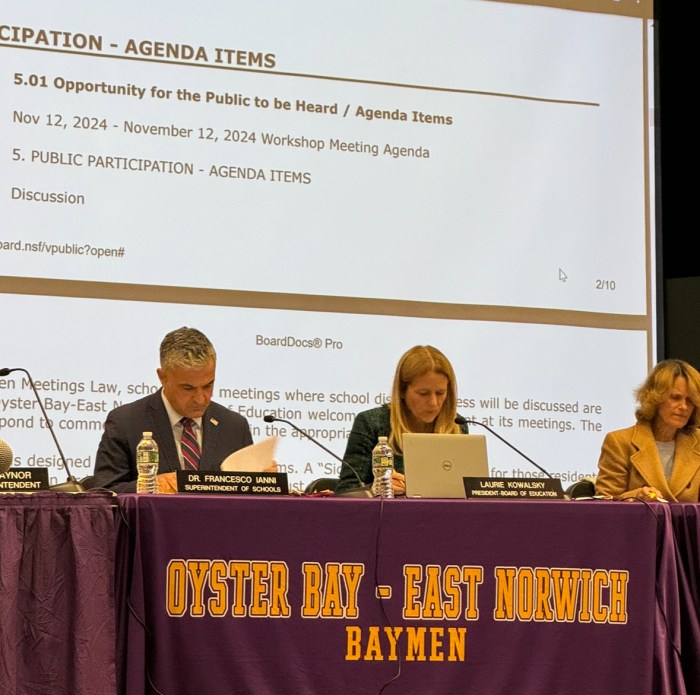
Have you thought about what happens when you don’t dispose of your garbage properly? Have you ever wondered how your garbage may be affecting marine life? Girl Scout Troop 3692 sought to determine how marine life is being harmed as a result of people polluting the local waterways and to bring water pollution awareness to the community in order to earn their Bronze Award. In order to learn more about the effects of water pollution, the troop researched bodies of water on Long Island to conduct a beach cleanup and analyze its findings.
The troop partnered with Waterfront Center at Beekman Beach in Oyster Bay, made a list of the supplies needed to conduct a beach cleanup, and on Sept. 21, 2019, set off along the beach to clean up along the beach and shoreline.
Beekman Beach is the home to many animals, including fish, snails, turtles, ducks, birds, horseshoe crabs and crabs. Residents enjoy the beach for swimming, fishing, paddling, hunting and boating. Prior to starting the cleanup, the troop met with Sarah, an educator at the Waterfront Center who talked to them about the impact of marine debris. She educated the troop not just on the local effects of litter and improper garbage disposal, but globally as well. Marine life can get caught up in and killed from litter that gets into the water, and large pieces of garbage can also harm marine habitats, such as coral reefs and sea grass. The effects of plastic on marine life is especially notable.
At first glance, Beekman Beach looked to be clean and well-maintained, free of debris and garbage. However, over the course of just one and one-half hours, the troop collected more than 520 pieces of garbage that would end up in the bay due to wind, tide and animals. The largest amount of litter consisted of plastic and glass, both of which are unlikely to biodegrade in the foreseeable future. The troop learned outlook for marine life is bleak if changes aren’t made in the way we dispose of our garbage and the products we use.
So how can we, as a community help? Troop 3692 offers these helpful suggestions:
1. Leave no trace: make sure that you leave no trace of your presence when you are out in nature and always throw your trash in the garbage or take it with you.
2. Change your packaging: try to buy products that are safer for the environment, for example, use reusable bags instead of plastic.
3. Don’t feed the animals: if you do bring food to the beach, don’t share with the animals. Sharing food with animals disrupts their diets and can be harmful to them and the food chain.
4. Reduce, reuse and recycle: instead of throwing your trash away, find other ways to use it, including upcycling.
5. Join a cleanup: everyone can partner with local and global waterfront centers and environmental groups to reduce the likelihood of pollution affecting our water sources and marine life.
Most importantly, Troop 3692 wants everyone to know the most important lesson they learned—this world is very precious and must be preserved for future generations. Remember not to litter and if you see garbage where it doesn’t belong, please do the right thing and pick it up and put it in the proper receptacle.






























